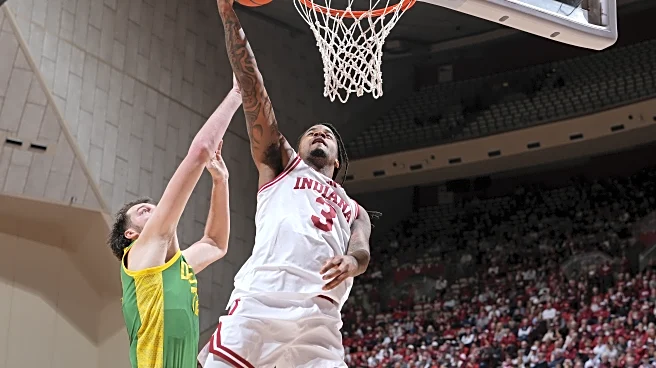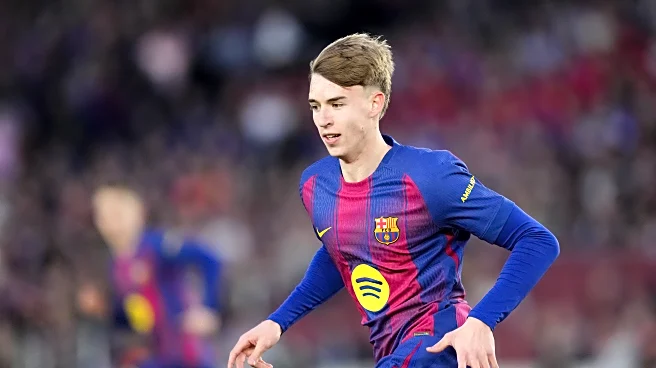What's Happening?
The New York Jets have made significant roster changes following the NFL trade deadline, signaling a shift in focus towards future team development. The team traded star defensive players Sauce Gardner
and Quinnen Williams, indicating a strategic pivot to evaluate the current roster for future seasons. Despite the trades, the Jets are committed to finishing the current season, with nine games remaining. General Manager Darren Mougey and Head Coach Aaron Glenn emphasize that winning remains a priority, although the team is currently 1-7. The upcoming game against the Cleveland Browns will serve as a platform to assess which players should remain for the next season. The Browns, also undergoing changes, have reassigned playcalling duties to Offensive Coordinator Tommy Rees and are starting rookie quarterback Dillon Gabriel.
Why It's Important?
The Jets' decision to trade key defensive players and focus on future roster evaluation is crucial for the franchise's long-term strategy. With five first-round picks over the next two years, the team is positioned to potentially acquire a franchise quarterback, which could significantly alter their competitive standing in the NFL. This shift impacts not only the team's immediate performance but also its future prospects, affecting stakeholders such as fans, players, and management. The trades have also caused a stir within the locker room, as Gardner and Williams were popular figures, and their departure marks a significant change in team dynamics.
What's Next?
As the Jets prepare for their game against the Browns, the focus will be on how the team adapts to the recent changes. Evaluating player performance in the remaining games will be critical for determining the future roster. The Browns, facing their own adjustments, will test the Jets' ability to maintain competitiveness despite the roster shakeup. The outcome of these games will influence decisions on player retention and future draft strategies, potentially reshaping the team's trajectory in the coming seasons.
Beyond the Headlines
The trades and subsequent focus on future development highlight broader themes in sports management, such as the balance between immediate performance and long-term planning. The Jets' approach reflects a strategic decision to prioritize future success over short-term gains, a move that could influence other teams facing similar challenges. Additionally, the emotional impact on players and fans underscores the human element in sports, where business decisions intersect with personal connections.











